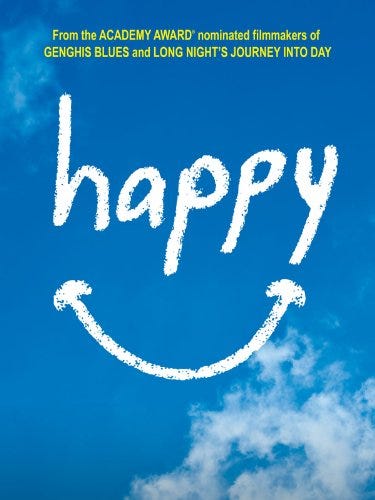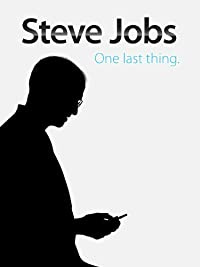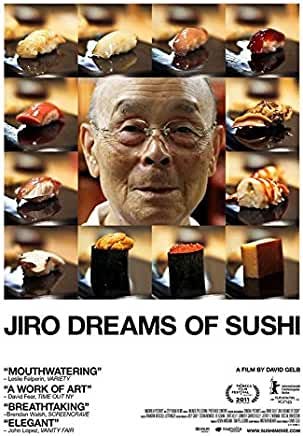Going Through An Existential Crisis?
Some Advice On Happiness From A Few Good Movies
Image by L.E. Wilson from RedBubble based on work by Gino Crescoli on Pixabay
First, let’s disentangle the difference between feeling sad, empty, and dissatisfied with life, versus wondering that the purpose of life is all about. They are somewhat related in that people who are content with life and the opportunities it offers don’t generally feel bad when thinking about philosophical questions like, what is the meaning of life?
The 2011 documentary movie Happy directed by Roko Belic delineates what makes people feel happy and satisfied according to various researchers. Before delving into an intellectual question about finding meaning and purpose in life, first make sure you are doing everything you need to do to feel good per the findings:
Engage in play (sports, comedy, games)
Fever Pitch (2005)
Have new experiences
Sullivan’s Travels (1941)
The Out of Towners (1999)
Feel connected to a community through friends and family
Do things that are meaningful or helpful (showing love and compassion toward others)
Groundhog Day (1993)
Klaus (2019)
Appreciate what you already have
It’s a Wonderful Life (1946)
Big (1988)
Want to feel fulfilled, elated, and ecstatic? Doing the things on the list above—and including the basics: getting enough physical exercise, sleep, nutrition, and hydration—will go a long way toward helping you get there. But if you look at the list carefully, most require at least one other person to join you. It’s more fun to play a sport or game with someone else, as is watching any kind of performance, be it a sporting event, be it a movie, be it a concert. It’s also true to some extent about having new experiences. Aren’t they all mostly better with someone who can witness, share, and reminisce with you about it? And obviously feeling connected to a community requires other people, groups of people even. Likewise, doing meaningful and helpful things implies doing so with and for others.
Hence, this article will focus on two things you can do by yourself: learning something—which combines engaging in play and having new experiences—and being grateful.
So what’s the real secret to happiness? It’s definitely *not* relying on other people to make you happy. And it’s certainly not demanding that they do. You have to be responsible for your own happiness. You have to make it happen, as the titular Matilda does in the 1996 movie directed by Danny DeVito that was based on the children’s book by Roald Dahl.
But how? Actor and comedian Julia Louis-Dreyfus shared her secret in an episode of comedian Jerry Seinfeld’s show Comedians in Cars Getting Coffee:
Here’s something that my mom said to me, and I think it’s very true, in terms of happiness. You have to always have something to look forward to. And it can be a very minor thing, or it can be a major thing, but you always have to have something you’re looking forward to next.
Looking forward to something is most easily accomplished, believe it or not, when you’re learning a new skill. Sure, you can plan and look forward to visiting a tourist attraction, going out in nature, taking pictures, reading a book, doing something creative, eating/cooking something, and, of course, watching a movie. These things will bring you pleasure, joy, fun. They help you pass the time. But typically those feelings of happiness dissipate when you’ve finished the activity.
But what gives you drive, what motivates you, pushes you to forego creature comforts, and makes you leap out of bed in the morning? Learning. Have you ever figured out something? Have you ever taught yourself something? Have you ever set a goal to learn a craft? It’s amazing how much contentment and sheer satisfaction is found in finding something you are interested in learning and seeing yourself grow as your mind and skills expand while progressing through ever more complex levels. It’s like a video game, but better! Actively learning something stops time, or at least you won’t notice the passage of time because you’re so gratifyingly engaged in something. This is the state of “flow,” or the feeling of energized focus and enjoyment while engaged in an activity that is discussed in the 2011 documentary, Happy.
When people wonder about founders, inventors, scientists, the “workaholics” who seemingly dedicate their lives to their work, they rarely ask about the intrinsic motivations behind this behavior. But the adage from Mark Twain, “Find a job you enjoy doing, and you will never have to work a day in your life,” holds true. Do you want to know why people start companies, create new technologies, build new products? Because they’re having fun doing so.
Your work is going to fill a large part of your life, and the only way to be truly satisfied is to do what you believe is great work. And the only way to do great work is to love what you do.— Steve Jobs
Even after making gazillions of dollars and being able to afford a life of leisure, most “workaholics” choose to continue their work. Why? Because it is intrinsically rewarding and motivating to learn to do something, to discover something. This is happiness. And this is why the United States has been so successful in developing big international brands. Part of the American psyche is to encourage fun. It’s not just drills and homework, drudge work and toil. School includes recess, sports, and clubs. Companies often offer extensions of these. Entertainment in various forms is pervasive in the US, and why “moviewise” even exists at all.
But note that everything that is entertainment is the result of a skill, be it writing, coding, singing, running, jumping, cinematography, music composition, animation. And again the people that rise up the ranks because of these skills could also be fairly classified as “workaholics.” But guess what? You can learn *any* of these skills. As Steve Jobs once said:
Everything around you that you call life was made up by people that were no smarter than you, and you can change it, you can influence it, you can build your own things that other people can use.
In other words, you can be a creator, not just a consumer. And in order to create, you must learn some skills. But once you find something that you really want to learn, it’s almost guaranteed that you’ll be very content indeed while honing your skills, and probably won’t even have time to wonder about the meaning of life.
One documentary that demonstrates finding flow in work is Jiro Dreams of Sushi (2011), which is the story of Japanese master chef Jiro Ono, who is a Shokunin, an expert craftsman who strives for perfection and feels great fulfillment and joy from yearning to improve bit by bit. He explains it thusly,
You must dedicate your life to mastering your skill. That’s the secret of success and is the key to being regarded honorably. […] . Even at my age, after decades of work, I don’t think I have achieved perfection. But I feel ecstatic all day. I love making sushi. That’s the spirit of the Shokunin.
But there is one other source of happiness that at the very least reliably gives you a sense of wellbeing and peace: being truly grateful for what you already have. All you need to do is to look at the news to see the level of turmoil and suffering that is possible. With that in mind isn’t it reasonable, isn’t it logical, to focus on the positive things in your life that bring you comfort, security, satisfaction, joy, peace?
Let yourself be filled with the feeling of gratefulness as you appreciate the wonder of being alive. Look, you can have a favorite snack because you exist. Actually, you can have multiple favorite snacks, and hobbies, and pleasures. What kind of amazing miracle is this? Did you ever stop to ponder it from a place of awe and fascination?
So what’s the meaning or purpose of life? To learn—as much as you can about as many things as possible. So go, find something to be good at, dive into it, and don’t forget to also be grateful, be grateful, be grateful!
Visit the moviewise catalogue—a searchable database of one sentence movie summaries, movie quotes, and movie wisdom—for movie recommendations.
Also visit the moviewise store. Get a t-shirt, bag, or pillow with your favorite #LifeLesson from a movie. Reply to this or leave a comment below to make a request.












Love this. There are so many great movies with this message. Everything Everywhere All At Once is in theaters now, and I heartily recommend it. While watching it I thought of another excellent "anything is possible" move, Masayuki Suo's 1996 masterpiece Shall We Dance (skip the Richard Gere remake). In that film, a successful salaryman realizes the emptiness of his life, but finds joy and redemption through chance. It's delightful. Also, if one is seeking hope and inspiration, look no further than the latest Ken Burns documentary on Ben Franklin. His brilliance, drive, and creativity are endlessly inspiring. I got a lot of comfort from watching it.
Learning and Gratitude - great thoughts about enjoying life! I try to start each day, before I get up, by thinking about 3 things or people I am grateful for. It's also a good habit to use anytime to help us remember how fortunate we are.